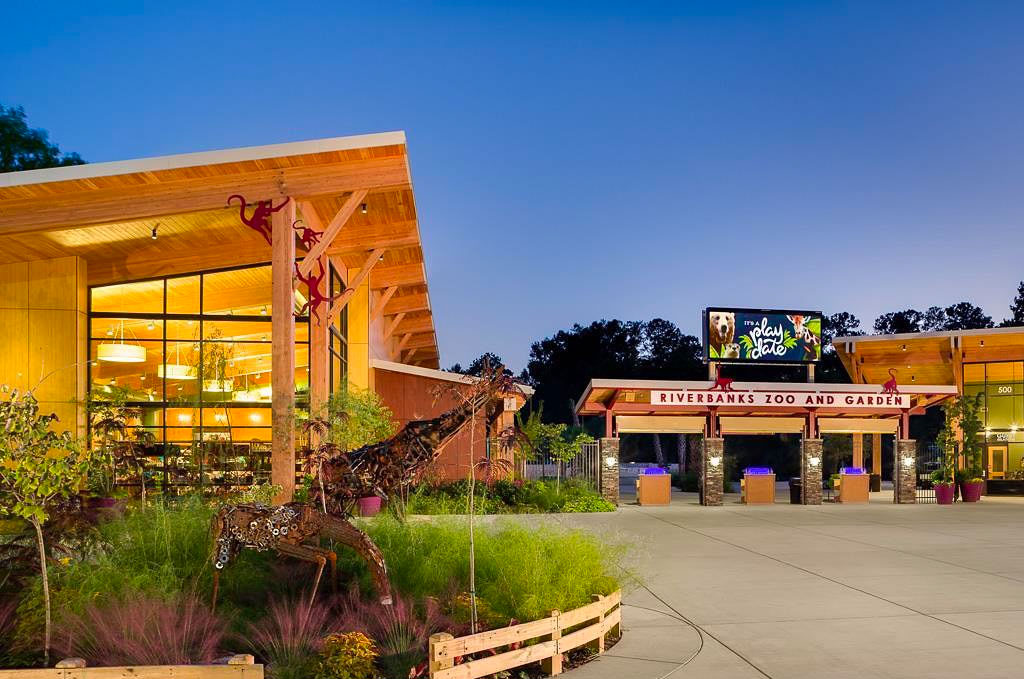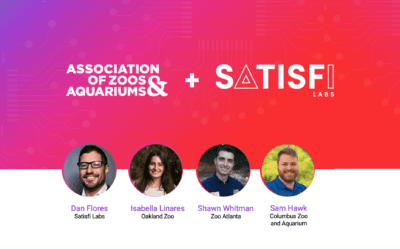The travel industry is changing fast, and it is not without thanks to AI-powered, conversational chats. Dan Flores, our Head of Tourism, is a key player in this industry’s evolution at Satisfi Labs. Our chat experiences, powered by our advanced AI, help travelers in new and personalized ways, making their journey smoother and more enjoyable. This technology is not just changing how we plan trips; it’s improving the entire travel experience from start to finish.
The integration of chat and conversational AI into the travel industry is not only making travel planning more accessible and personalized but is also setting the stage for a future where every aspect of the travel experience is seamlessly enhanced by technology.
Redefining the Travel Experience with AI
Rapid Adoption & Engagement
The data shows just how much of an impact this technology has had already: In the US, 18% of adults had used conversational AI for travel by October 2023, which is an impressive jump from the 10% of adults measured in May 2023 (Pscyh of Tech). This growth shows that automated chat experiences, like Satisfi’s own AI Chat, are becoming a go-to tool for travel planning, marking a big shift in how consumers research for and book their trips.
US Travelers Want to Have Conversations
Reviewing the generational adoption data makes conversational AI technology even more impressive. Within a single year of being introduced to mainstream consciousness, generative chat experiences like ChatGPT had an adoption rate of 8% among US adult vacation travelers, with Millennials leading the pack at 14% (Deloitte).
Although it might seem modest at first glance, this is a notable adoption rate given the early stage of the technology. In a historical context, it took tech giants like Facebook and Spotify several months to years to reach one million users. ChatGPT reached one million users in five days.
Bridging Generational Gaps
You might be wondering what this means for different groups of travelers. For example, younger travelers are especially interested in using conversational chat experiences to help them make travel decisions. Here’s a quick look at who’s using AI for their planning:
- Gen Z: 12% have used it for planning.
- Millennials: 14% have added it to their trip planning process.
- Gen X: 7% are on board with the technology.
- Boomers: 3% are giving it a try.
These numbers show a generational divide that may be bridged as the technology matures and becomes even more integrated into the travel planning process. Dan Flores expanded on the easy integration of tools like Satisfi’s AI Chat with existing travel and hospitality management systems. “It’s not just about answering questions; it’s about enhancing the entire travel experience,” he stated. From ticket purchasing to on-site activities, conversational AI acts as an omnipresent agent, guiding travelers through their journey.

Why Conversational AI Resonates for All Ages
The transformative impact of AI-powered chat technology in travel extends beyond mere convenience; it symbolizes a new era of ultra-personalized journey planning and customer service that was once categorized as science fiction. This shift towards conversational, AI-enhanced interactions in travel planning shows a distinct societal progression towards more personal and stress-free travel experiences, showing the power of technology in making trip planning accessible and enjoyable for travelers of all ages.
The generational data paints a vivid picture of the technology’s tangible impact across various age groups. Yet, it’s the underlying benefits these AI-powered chats bring to each traveler demographic that truly tell the story of their meteoric rise in adoption:
- Gen Z and Millennials are known for being tech-savvy and having a demand for instant gratification. They find these tools invaluable for speedy trip planning and receiving immediate, tailored recommendations.
- Gen X and Boomers appreciate the simplicity and user-friendliness of these chat interfaces, as they help remove the intimidation factor of technology and allow for more comfortable and accessible travel planning.
Real Results: Riverbanks Zoo and Garden
Let’s take a moment to consider the case of Riverbanks Zoo and Garden in South Carolina. Facing a surge in popularity and, consequently, customer questions, they added Satisfi’s AI Chat on their website and Facebook Messenger. The outcome? A whopping 113k+ of managed conversations, a decrease in call volume by 18%, and 44,000 unique visitors assisted – all within a year. This case not only shows the technology’s great customer service abilities, it also highlights its potential as a rich, specialized data source for informing marketing strategies.

The results from Riverbanks Zoo and Garden display the far-reaching advantages of implementing these tools, illustrating how the technology not only supports customer service teams but also gathers insights to inform marketing, sales, and operational strategies. This approach to data-driven decision-making is a cornerstone of contemporary tourism management. By analyzing the conversations and interactions that these intuitive chats handle, businesses can identify trends, predict demand, and even shape future offerings that align closely with traveler preferences.
Incoming: Comprehensive Digital Ecosystems
Looking ahead, the integration of AI-powered chats with travel and hospitality systems shows a move towards comprehensive digital ecosystems. Seamless connection managed by AI means that every phase of the travel experience, from booking to boarding and from stay to review, can benefit from the technology’s efficiency and personalization. But perhaps the most exciting aspect of this technology in travel is its ability to adapt — not only to the unique demands of each user but also to the ever-evolving expectations of the market. Just as live travel agents once provided a personalized touch, chat-based AI tools offer a modern version of this personalized service at scale.
The technology’s adaptability ensures it can evolve with trends, making real-time adjustments based on direct feedback and usage patterns. For the travel industry, this means staying ahead of the curve, offering experiences that are not only satisfying in the moment but also continuously refined for the future.
Merging Digital and Physical Experiences
As these technologies mature, the distinctions between digital and physical experiences are becoming increasingly blurred. AI-powered chats are at the forefront of this convergence, offering not just a tool for planning but a companion for the entire travel experience. With each interaction, it learns, adapts, and anticipates, crafting journies that are as unique as the travelers themselves.
The AI-integrated journey into the future of travel is one of limitless potential and unprecedented customization – and it’s a journey that is just beginning.




